 Petzlover
Petzlover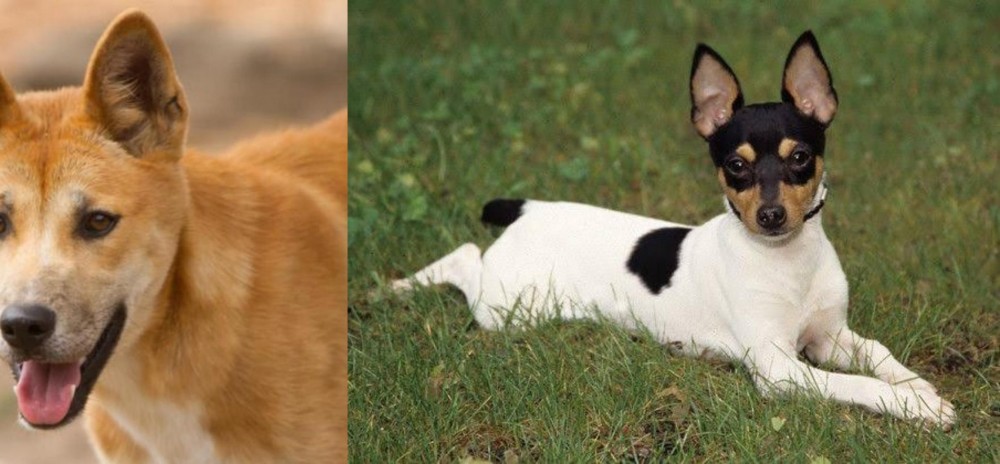 Dingo is originated from Australia but Toy Fox Terrier is originated from United States. Dingo may grow 31 cm / 13 inches higher than Toy Fox Terrier. Dingo may weigh 28 kg / 62 pounds more than Toy Fox Terrier. Dingo may live 6 years more than Toy Fox Terrier. Both Dingo and Toy Fox Terrier has almost same litter size. Dingo requires Moderate Maintenance. But Toy Fox Terrier requires Low Maintenance
Dingo is originated from Australia but Toy Fox Terrier is originated from United States. Dingo may grow 31 cm / 13 inches higher than Toy Fox Terrier. Dingo may weigh 28 kg / 62 pounds more than Toy Fox Terrier. Dingo may live 6 years more than Toy Fox Terrier. Both Dingo and Toy Fox Terrier has almost same litter size. Dingo requires Moderate Maintenance. But Toy Fox Terrier requires Low Maintenance
 The Dingo dog was in all probability, introduced to Australia thousands of years ago. He isn’t your usual domesticated dog and in fact it is a feral dog native to Australia.There are stories that suggest that while they may have once been pets, they were abandoned so that they reverted back to their wild state.
The Dingo dog was in all probability, introduced to Australia thousands of years ago. He isn’t your usual domesticated dog and in fact it is a feral dog native to Australia.There are stories that suggest that while they may have once been pets, they were abandoned so that they reverted back to their wild state.
They became pests for Australian farmers, going for their livestock, and huge fences were erected. The different climates in Australia have meant different kinds of Dingo developing, so while the desert ones are like the desert sands - golden yellow to red the alpine ones are rarer and are cream colored.
These wild canines were also introduced to Southeast Asia some 3,500 years ago, however the dog’s exact origin is debatable. There are any number of groups of people who could have brought the dingo to Australia, and among some of these are Indian mariners or maritime hunters.
The dog has been found in many parts of mainland Australia but never became established in Tasmania.There has also been an effort to remove the Dingo from farming areas. It is interesting to note that the first Dingo, referred to as the Australian dog, was registered at the London Zoo in 1828.
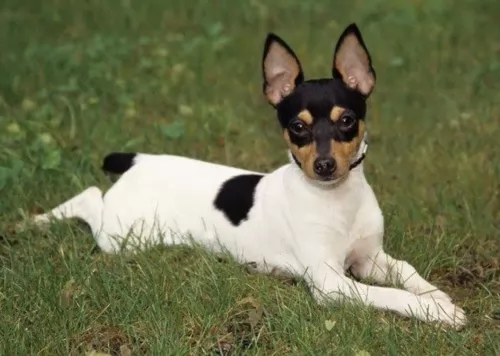 The small Toy Fox Terrier was developed in the United States of America and is a smaller look-alike of the larger Smooth Fox Terrier.
The small Toy Fox Terrier was developed in the United States of America and is a smaller look-alike of the larger Smooth Fox Terrier.
Several toy breeds as well as the Smooth Fox Terrier were used to bring about the small Terrier dog.
Small though they are, they have had a role to play, particularly on farms where they've been used as ratters. They’ve also been used in circuses to perform tricks. These days they excel as being devoted companions of their human masters. These dogs are recognized by the United Kennel Club (UKC).
 An interesting fact with these fascinating feral dogs, is that like humans, they’ve got rotating wrists. This characteristic of theirs allows them to use their paws much like the human hand to catch their prey. A domesticated Dingo can therefore learn how to open doors.
An interesting fact with these fascinating feral dogs, is that like humans, they’ve got rotating wrists. This characteristic of theirs allows them to use their paws much like the human hand to catch their prey. A domesticated Dingo can therefore learn how to open doors.
The Dingo is a medium sized dog standing at roughly 52 – 60cm in height, measuring up to 1.2 meters in length and weighing roughly between 23 to 32kg.
He has long canine teeth, a long muzzle, upright ears and a long, thick tail. The coat is essentially one color, sandy, white, cream, tan or black and sometimes there are white markings on the chest, the paws and around the muzzle.
The fur is typically shortish and thick — though the hair's thickness and length will depend on the climate of the area. The Dingo is a moderate shedder and a good brushing of the coat twice a week will keep the thick coat shiny and healthy.
These wild canines are social animals, and in the wild they live in packs. There are some that opt to live on their own.
They’e territorial, but they are able to share their living space with humans. They’re generally shy around humans, but a Dingo that is trained and socialized can get along well with children and pets in the home.
 The Toy Fox Terrier stands at between 22 – 29cm in height and weighs between 1.5 and 4kg. He is squarely built, with alert, dark eyes, and large, erect ears.
The Toy Fox Terrier stands at between 22 – 29cm in height and weighs between 1.5 and 4kg. He is squarely built, with alert, dark eyes, and large, erect ears.
The high set tail is nearly always docked. The coat of this dog is short and smooth and it sheds moderately. Color is mostly white with tan or black markings. The face is nearly always black and tan.
His body is lean, lithe and muscular and gives the impression of being well-groomed. The females give birth to between 2 and 6 puppies with the gestation period being 60-64 days. Have your dog spayed to avoid unwanted puppies.
Toy Fox Terriers are loyal, protective dogs and they make excellent watchdogs in terms of barking a lot when needed.
He is such a sport and wants to be part of all the activities that his human family are busy with. They make great playmates for older children, but care should be taken with toy breeds and small, undisciplined children who could hurt them.
These dogs also get on well with other pets in the home and they can adapt easily to life in the city or the countryside. He isn’t the brightest dog, but intelligent enough to learn some basic commands.
His deep loyalty to his human family makes him a little bit aloof with strangers. While he is eager to please, he also has a mind of his own and this is when training and socialization turn him into an obedient little dog.
He has loads of energy too and will rely on his human owners to take him on walks and play ball games with him.
 Dingoes have been domesticated successfully. Some people swear by them as making a fantastic pet. However, they’re wild dogs and can be unpredictable.
Dingoes have been domesticated successfully. Some people swear by them as making a fantastic pet. However, they’re wild dogs and can be unpredictable.
There are others who have tried to keep the Dingo as a pet but who have discarded them when they proved to be a danger in the home.
Dingoes can be trained but they’re high energy dogs and require a lot of exercise. How do you feel about owning a Dingo as a pet? Many people feel that its not fair to bring an essentially wild animal into your home. They feel that there are plenty of rescue dogs dying for a home without human beings searching in the wilds for an unusual pet, and regretting it later on.
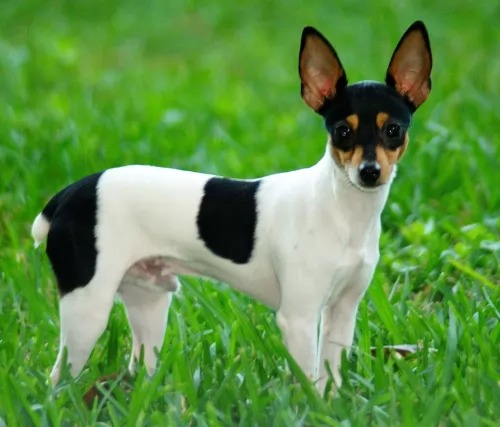 Small and spunky, the Toy Fox Terrier is such an entertaining little pet, full of beans and curiosity.
Small and spunky, the Toy Fox Terrier is such an entertaining little pet, full of beans and curiosity.
He has sharp eyes and his hearing is good and this makes him a good watchdog. He is independent and intelligent, playful and jaunty.
When you allow one of these little dogs into your home, you’ll wonder how you ever got by without one, as he promises to be loving and loyal throughout your friendship with him.
 The Dingo is a long-lived dog and you can expect your Dingo to live till anything between 15 and 20 years.
The Dingo is a long-lived dog and you can expect your Dingo to live till anything between 15 and 20 years.
When it comes to health issues, they are robust and resilient, having less medical problems to contend with than your regular dog.
However if you see that your Dingo is not his usual robust, energetic self, get him to the vet as soon as you can.
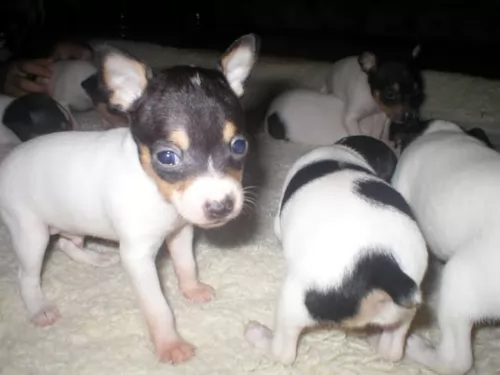 Toy Fox Terriers are generally healthy, but like all breeds, they're prone to certain health conditions.
Toy Fox Terriers are generally healthy, but like all breeds, they're prone to certain health conditions.
It is highly unlikely he’ll get any of the common dog illnesses there are if he is looked after well, but he could.
This is a common dog disease of small breeds, and it is very similar to hip dysplasia. Problems with the femur causes wear and tear with arthritis coming about as well.
 Caring for your Dingo will be different to caring for your usual pet dog. You have to remember the Dingo is an ancient, wild species with some unique characteristics. Having a Dingo as a pet and companion may not be an easy task, and it is why many people selfishly dump their Dingoes – they didn’t quite live up to what they had in mind.
Caring for your Dingo will be different to caring for your usual pet dog. You have to remember the Dingo is an ancient, wild species with some unique characteristics. Having a Dingo as a pet and companion may not be an easy task, and it is why many people selfishly dump their Dingoes – they didn’t quite live up to what they had in mind.
Your Dingo, just like any other dog you’d have, will require training and socialization, and the earlier the better. No training will simply mean you having an unruly pet in the home.
Your Dingo can be fed just like you would with your other dogs. You can feed him quality dog kibble as his main diet, but you can also add in cooked rice, vegetables and chicken. Your Dingo is essentially a wild dog, so you will definitely want to include some raw meat into his diet from time to time as well.
A Dingo is used to running free so he will require plenty of outdoor exercise. He can also be put on a leash and taken for a walk. He’ll love joining you in your activities such as running alongside you as you jog or cycle. He can adapt to life in the city if he is well exercised but he isn’t suited to a small home or garden.
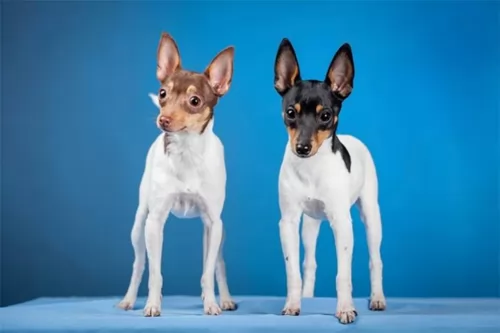 This little dog is essentially a companion. Just like people get these little dogs to be a companion, the dog also needs to receive proper care too.
This little dog is essentially a companion. Just like people get these little dogs to be a companion, the dog also needs to receive proper care too.
Make sure your pet gets the right amount of food and also the right type of food. He’ll need food rich in vitamins and minerals. He’ll also benefit from wholesome home-made food – boiled chicken, brown rice, sweet potato, spinach and carrots – simple, harmless foods like that.
Don’t be tempted to pop peanuts, chocolates, grapes, onions and other human foods into his mouth as it can give your pet a stomach ache and diarrhea.
Get your pet to the vet if he’s sick. He’ll need vaccines too to prevent some of the deadly canine diseases there are.
Provide your pet with adequate games and other forms of exercise. Exercise is essential for good health.
Spay or neuter your dog to avoid an unwanted litter of puppies. There are health benefits to having this done too.
Groom your small dog regularly and get rid of those loose hairs. With his short hair, the Toy Fox Terrier is considered to be a low maintenance dog.